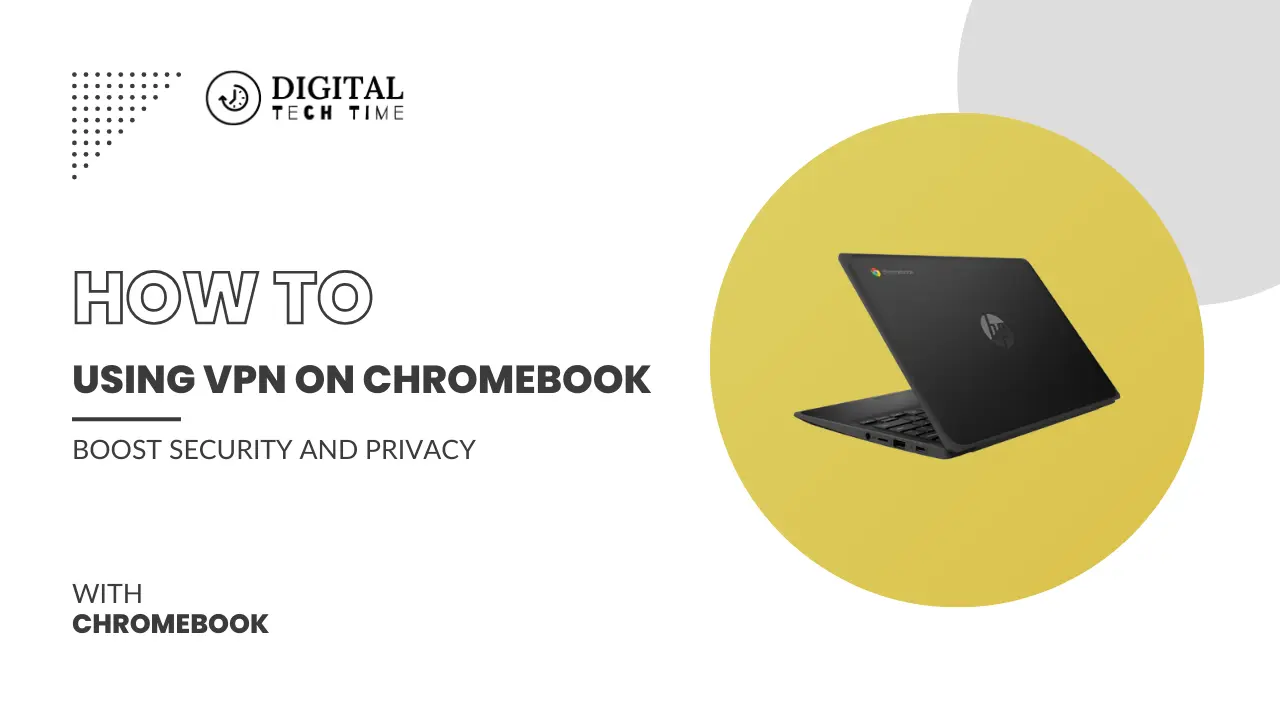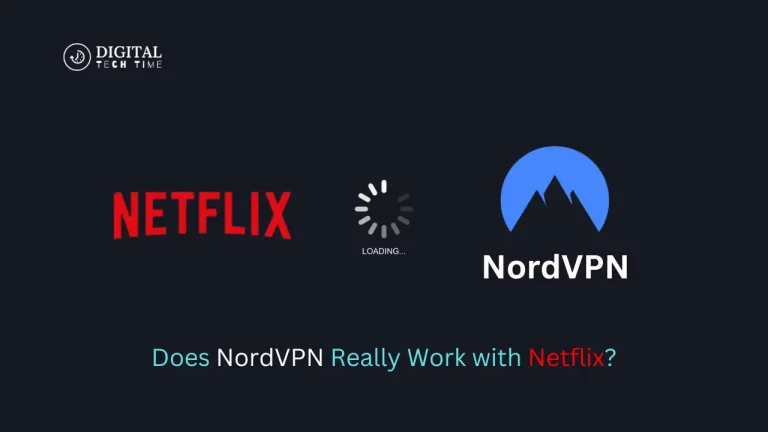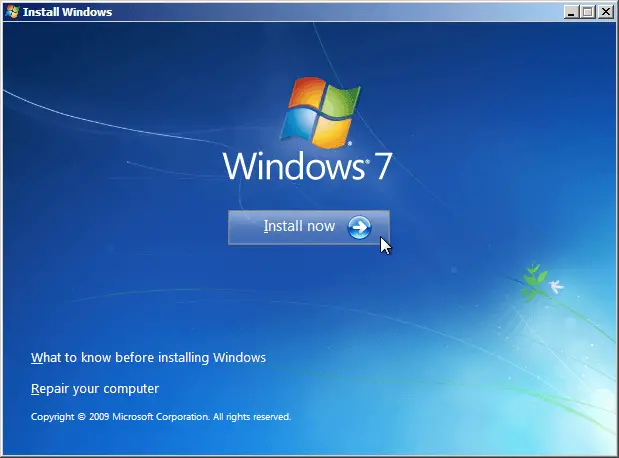How to Using VPN on Chromebook: Boost Security and Privacy
Keeping an online experience secure and private would mean there is something crucial for any Chromebook user to care about. Protection-sensitive information must be taken proactively with the rapidly growing cybersecurity threat landscape. Where does a Virtual Private Network come in, or VPN, as abbreviated? Here, I show you, with this comprehensive guide, the benefits, how to set one up, and best practices for using a VPN on Chromebooks.
Table of Contents
Benefits of using a VPN on a Chromebook
Incorporating a VPN into your Chromebook usage can provide numerous advantages, including:
- Enhanced Security: VPNs have encryption for your traffic. With the encryption, intercepting your data by hackers or snoopers becomes impossible, even on public Wi-Fi networks.
- Improved Privacy: A VPN will mask your IP address and forward your internet traffic through the VPN server, keeping your online identity and activity away from prying eyes.
- Unlimited Access: A VPN grants access to bypass geo-restrictions and gives you access to content that might be restricted within your area, including social media and news websites, and does not exclude streaming platforms.
- Reduced ISP Throttling: It will serve well when most ISPs throttle their clients by hiding all your online activities to prevent an ISP’s identification of your traffic type.
- Secure Remote Work: If you use your Chromebook to work from anywhere or access sensitive corporate resources, a VPN adds a layer of security by enabling you to protect your data and comply with your organization’s policies.
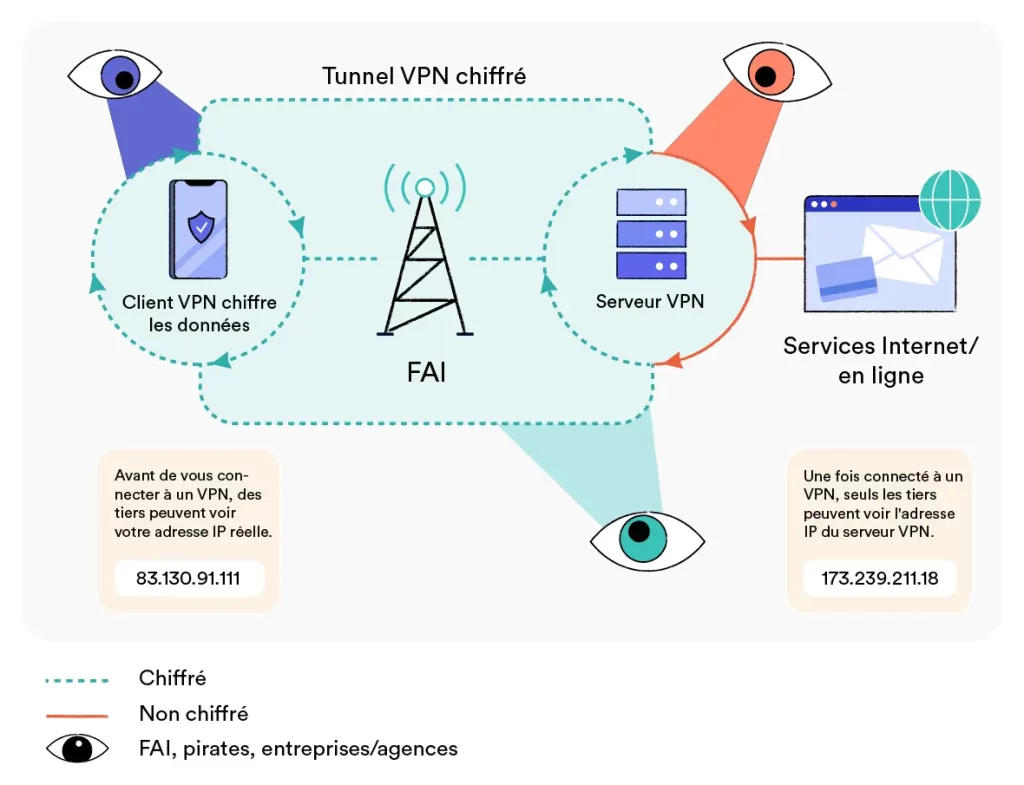
How to set up a VPN on a Chromebook
Setting up a VPN on your Chromebook is a straightforward process. Here’s a step-by-step guide:
- Choose a VPN Service: Look for a good VPN service with compatible Chromebook apps or extensions. Popular VPN services include NordVPN, ExpressVPN, and Surfshark.
- Download the VPN App or Extension: Your VPN service will require an app or browser extension based on your service type. Follow the instructions provided by the provider to download the needed app or extension to your Chromebook.
- Connect to a VPN Server: Once you have installed the VPN software, the app or extension opens and asks you to choose the location of the VPN server. The application automatically connects you to the VPN and creates a secure connection.
- Verify the VPN Connection: After connecting, verify your IP address and location to ensure all is working as it should be. Most VPN providers have a built-in feature confirming your new IP address and location.
- Optional: Configure VPN Settings. Many VPNs have settings where users can change things. You may use another protocol, enable a kill switch, or configure split-tunneling.
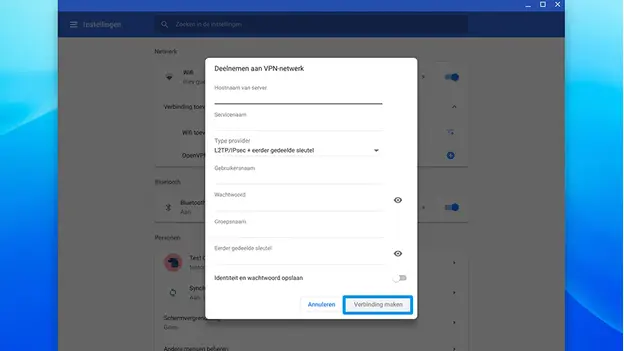
By following these steps, you can easily set up a VPN on your Chromebook and start enjoying the benefits of enhanced security and privacy.
Recommended VPNs for Chromebook
When thinking about using a VPN on a Chromebook, one indeed feels about security, speed, the network of servers, and ease of use. The following are some of the most excellent VPN service providers working very well with Chromebooks:
- NordVPN: Recognized for advanced security features, an enormous network of servers, and incredible ease of use, it offers a native application for Chromebook and an extension for a browser.
- ExpressVPN: is recognized for its lightning-fast speeds and strong encryption, which translate to the best performance. Friendly usage is available for both its Chromebook app and the browser extension.
- Surfshark: An inexpensive VPN that offers excellent value without giving up security or performance. It supports an application for Chromebook and an extension for the browser.
- ProtonVPN: This VPN is already focused on safety and privacy for its users to let them protect all sensitive data. ProtonVPN has a Chromebook-dedicated app and extension.
- CyberGhost: It offers ease of use with many servers and advanced functions. CyberGhost can propose a dedicated Chromebook app and browser extension.
When considering these VPN service providers, remember what exactly you want in terms of simultaneous connections, server locations, and customer support. Which VPN is best for Chromebooks depends on personal preferences and requirements.
Tips for using a VPN on a Chromebook
To get the most out of your VPN experience on your Chromebook, here are some helpful tips:
- Choose the Right Server Location: Choose a VPN closest to your physical location because this gives you optimum performance and speed.
- Enable the VPN on Startup: Set your VPN to automatically connect to Chromebook power-up so your internet is always secure.
- Use a VPN for All Internet Traffic: Enable the “kill switch” or “always-on” feature so that your Chromebook internet traffic is routed accordingly.
- Use Split-Tunneling: If possible, utilize split tunnelling to route, at will, certain apps or websites through the VPN and route other traffic around the VPN.
- Keep Your VPN Up-to-Date: Routinely check for and install updates to your VPN app or extension, guaranteeing you have the latest security protocols and features.
- VPN performance monitoring: Observe the speed at which your VPN connects, the load on servers, and any drops in connectivity for the best experience.
By following these tips, you can optimize your VPN usage on your Chromebook and enjoy a seamless, secure, and private online experience.
VPN alternatives for Chromebook users
While a VPN is an excellent tool for enhancing security and privacy on your Chromebook, there are also some alternative options you may want to consider:
- Incognito/Private Mode: Chromebooks have an option for Incognito or private browsing that does not record browsing history, cookies, or sensitive data.
- Chrome Extensions: To further enhance this security and protect your data, there are different kinds of Chrome extensions available, such as HTTPS Everywhere, Privacy Badger, and uBlock Origin.
- The Tor browser is a security and privacy-centric browser you can install on your Chromebook. In its default mode, the browser takes your internet through encrypted servers to anonymise your use and identity online.
- Change the DNS provider to a more privacy-oriented one, such as Cloudflare’s 1.1.1.1 or Google’s 8.8.8.8. These DNS providers encrypt DNS requests and protect anyone who tries to intercept those requests.
- Email Providers: Send all or most emails through a dedicated encrypted email service like ProtonMail or Tutanota if you would like to add extra security layers to keep it safe from data breaches.
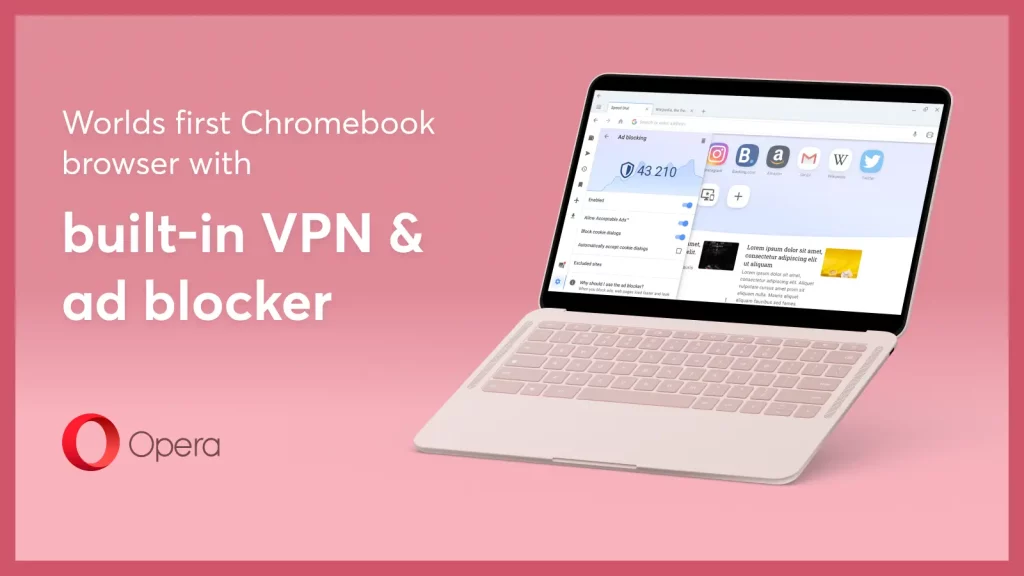
All these options will give some security and privacy. Still, none provide as much protection in the case of your Chromebook as a VPN would, with the complete encryption of your Internet traffic and the capability to bypass geo-restrictions.
Read More: Effective Content Marketing: Strategies for Success
Frequently Asked Questions
Q: Is using a VPN on a Chromebook safe?
A: Yes, using a VPN on your Chromebook is generally safe if you select a good and trustworthy VPN service provider. A VPN secures your internet traffic and keeps your online activities private from prying eyes.
Q: Do I need a VPN on my Chromebook?
A: While not required, a VPN benefits Chromebook users looking to improve online security and protect their privacy drastically. With a VPN, you will get access to restricted content, too.
Q: Can Chromebooks run a VPN?
A: Chromebooks now support VPN software; most VPN providers provide dedicated apps and browser extensions.
Q: How do I know if my VPN is working on my Chromebook?
A: You can verify that it works by visiting a website showing your IP address and location and ensuring it reflects the VPN server to which you are connected.
Q: Can I use a free VPN on my Chromebook?
A: Besides free VPNs abound, using a paid and reputable VPN service for your Chromebook is usually recommended because those free VPNs might compromise your security or privacy due to questionable data practices.
To ensure your online security and privacy on your Chromebook, [sign up for a reliable VPN service] today. With a VPN, you can enjoy a secure and unrestricted internet experience no matter where you are.
Conclusion
In the modern-day digital space, a VPN on a Chromebook has become an essential tool for maintaining online security and privacy. It encrypts the data you send online and masks your IP address. In this regard, a VPN protects users from several types of cyber threats and opens the door to content that one user may otherwise not have access to because of geo-restriction.
In this comprehensive guide, I have looked at the main advantages of a VPN on your Chromebook, given steps for how one would go about setting it up, and recommended a number of the best providers in the market. Further, I have shared some handy tips, troubleshooting advice, and insight into questions about the legality of VPN usage.
Online security and privacy are the most important things; a trustworthy Virtual Private Network will be your best ally in securing your digital life. Take all the necessary measures to ensure your protection and enjoy your Chromebook securely, privately, and without limits.

